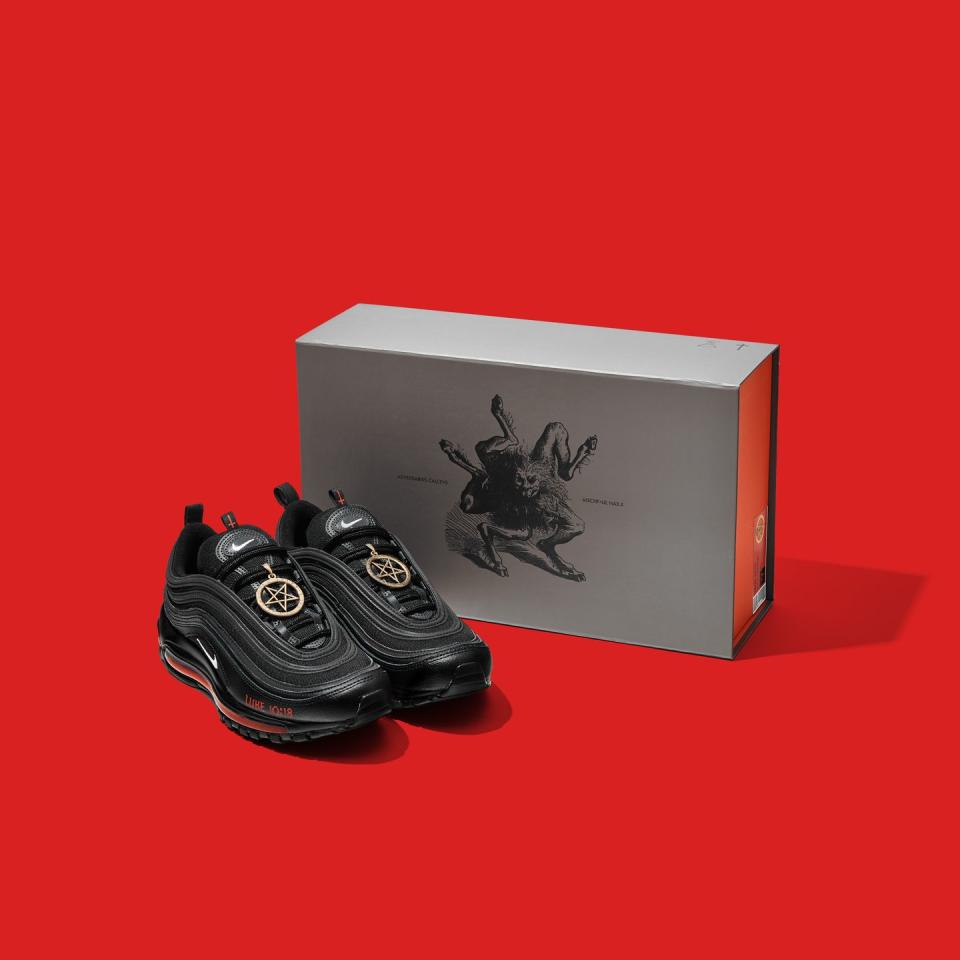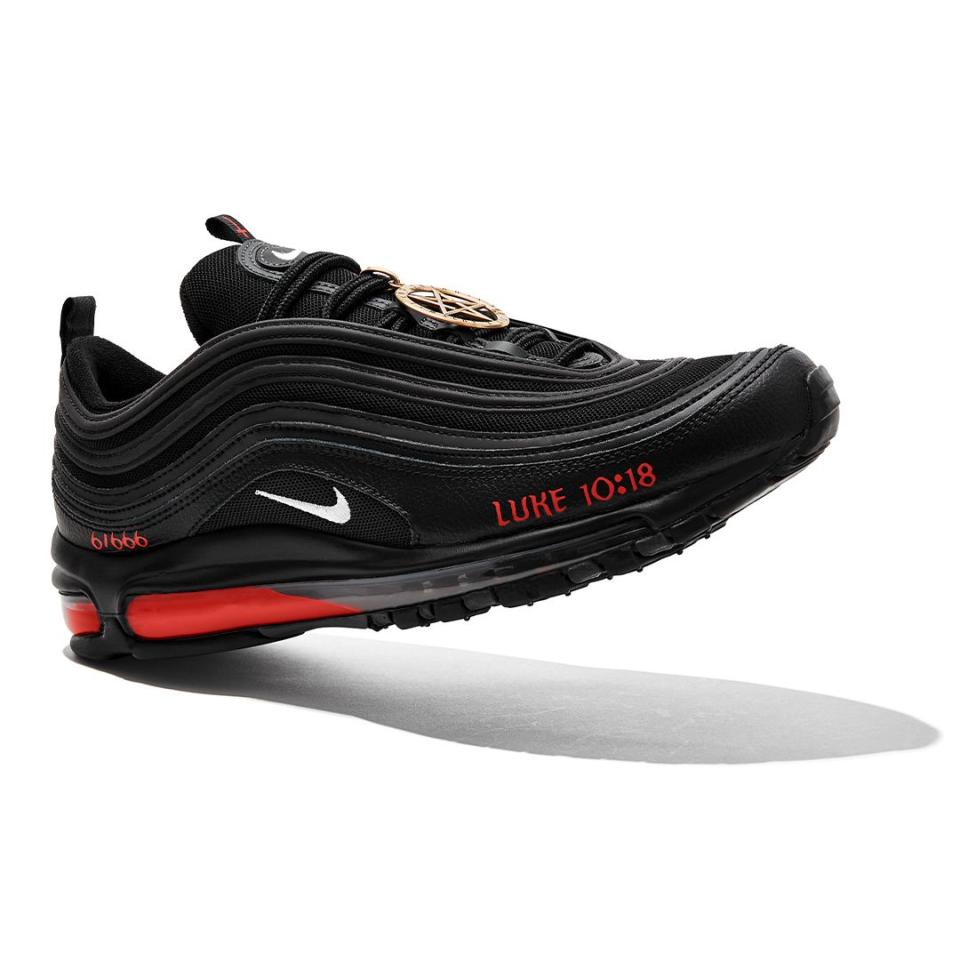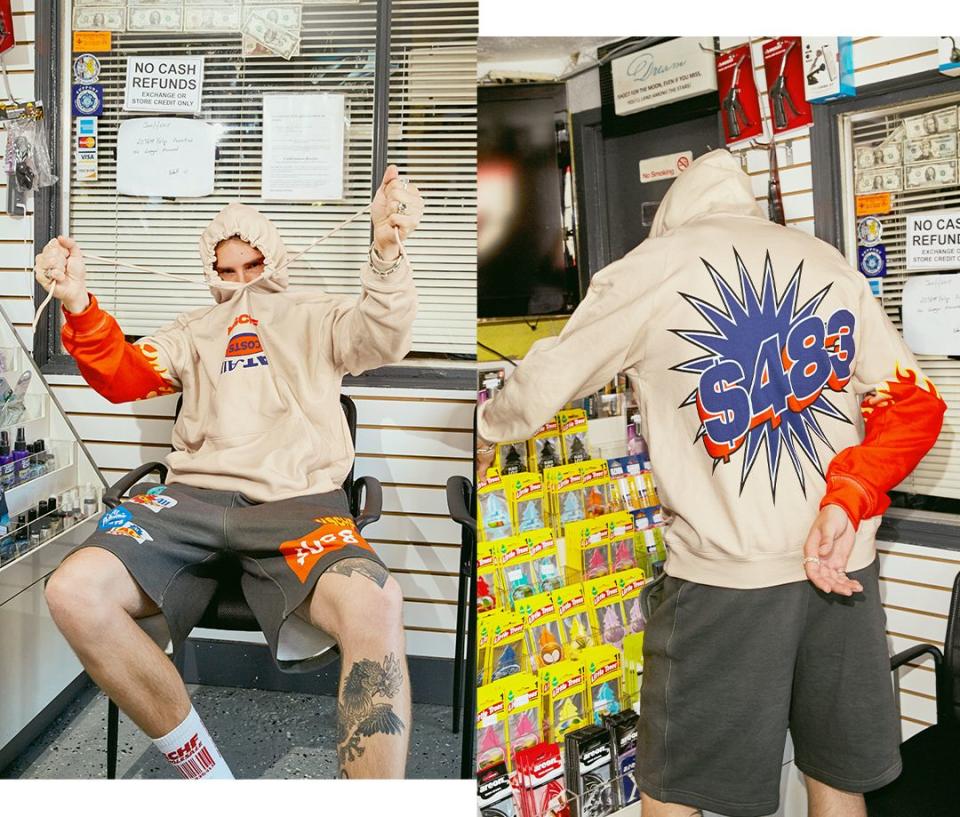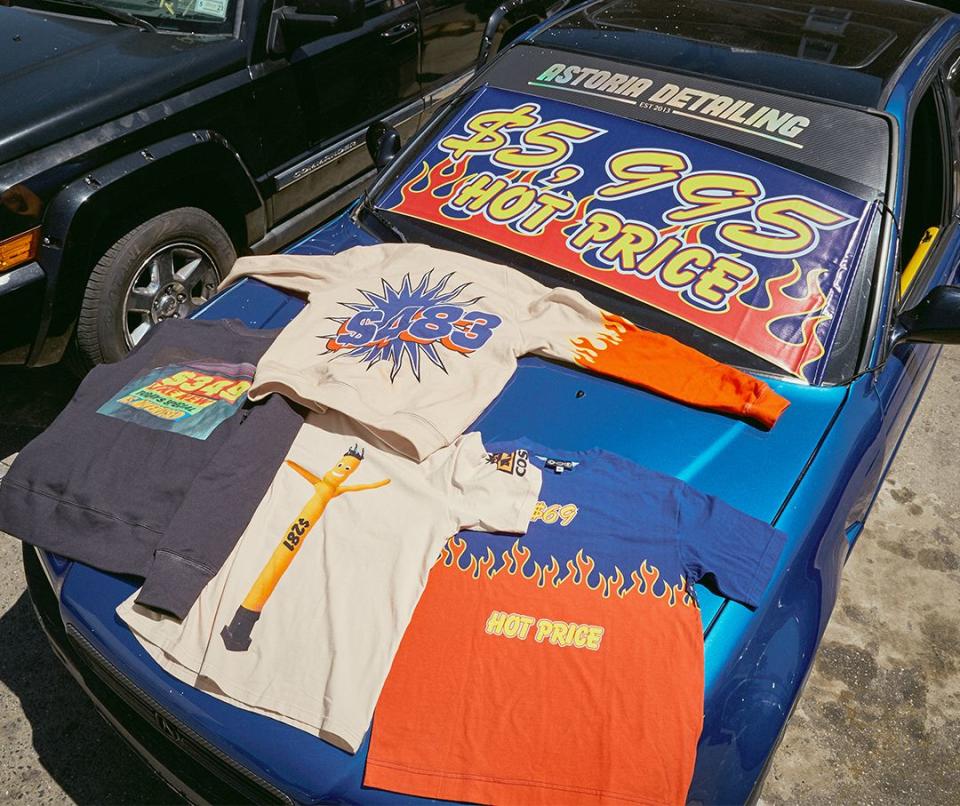Inside MSCHF's Bold, Brilliant, Slightly Unhinged Plan to Shake Up Streetwear

“Hearst Magazines and Verizon Media may earn commission or revenue on some items through the links below.”

About two minutes into his music video for Montero (Call Me By Your Name), Lil Nas X is killed by a flying butt plug to the forehead. His spirit, clad in stiletto heels and Calvin Klein underwear, descends a stripper pole into the depths of hell where he finds Satan, seduces Satan, and then eventually breaks Satan’s neck.
The video, which now sits at nearly 250 million views on YouTube, caught the eye of practically anyone with a pulse. Critics (deservedly!) heaped praise on Montero for its obvious important message to LGBTQ+ youth. (Esquire’s Justin Kirkland called it an “unapologetically queer hip hop anthem.”) Almost immediately after the video debuted, the style minded and sneaker obsessed began to chatter about the shoes Satan (also played by Lil Nas X) wore in the video: a pair of black and red Nike Air Max 97s modded with an upside-down cross, a bronze pentagram, and injected with a drop of human blood.
The shoes were a collaboration between Lil Nas X and MSCHF, a Brooklyn based art collective (we’ll get to why that description doesn’t quite work in a second) that releases puckish products that often stir up controversy. Right after Montero dropped, MSCHF put 666 pairs of the Satan Shoes for sale on its website. They sold out in minutes.

The reaction to the video and the shoes on Religious Outrage Twitter was equal parts pearl-clutching and self-righteous self-promotion. One evangelical pastor called the shoes “heresy” and prayed “Christians rise up against this.” Kristi Noem, the governor of South Dakota, decried the Air Max’s, stating in a tweet, “Our kids are being told that this kind of product is, not only okay, it's ‘exclusive.’ But do you know what's more exclusive? Their God-given eternal soul.”
Lil Nas X eventually issued what at first looked like an apology video for the shoes only to have it cut to a series of clips from Montero where he gives Satan a lap dance in hell. Nike almost immediately disavowed having any connection to the shoes, issuing a statement that said it did not endorse the collaboration and would be filing a lawsuit citing for trademark violation and brand damages against both Lil Nas X and MSCHF.
MSCHF eventually reached a settlement with Nike, by agreeing to a “voluntary recall” which allowed customers to return the Satan shoes to MSCHF if they chose to do so. This wasn’t the first lawsuit MSCHF has dealt with during its relatively short existence, nor will it likely be the last.

Welcome to Planet MSCHF. Here are your blood shoes.
Part of MSCHF’s appeal is in its hard-to-define mystique. Founded in 2016 by Gabriel Whaley, a former Buzzfeed employee, various media outlets have struggled to define MSCHF, alternately calling it everything from just “a marketing start-up” to a “guerrilla band of merry pranksters.” Whaley, who now serves as MSCHF’s CEO, told us that occasionally, “we toss around the term VC-backed art collective.” MSCHF’s LinkedIn profile lists it as a dairy company.

In reality, it operates a little like an experimental creative lab co-founded by Tyler Durden and Banksy. Every two weeks the company drops a new product; some are tangible (like the Satan shoes) others exist only as digital offerings (like software that generates artificial foot-fetish pics) but every drop always contains a generous helping of chaotic energy.
Occasionally, MSCHF offers up something that’s more of an experience than a product. For drop #40, MSCHF purchased a robot dog from Boston Dynamics, rigged it with a paintball gun, and allowed people to take the machine on a remote-controlled rampage in an art gallery. Boston Dynamics quickly spoke out against the project stating, “we condemn the portrayal of our technology in any way that promotes violence, harm or intimidation.” It is worth noting that Boston Dynamics has developed projects in the past for DARPA, a Department of Defense research agency including a robotic dog designed to get supplies to marines in combat zones and a menacing humanoid robot that vaguely resembles a T-600.

Now about that $420 hoodie
Normally, MSCHF’s products are released on a drop cycle every two weeks. Its latest project, though, is built to last a little longer. It's a standalone retail website dubbed At All Costs, which sells MSCHF-branded streetwear: hoodies, shorts, and t-shirts. Like all things MSCHF, there is an additional layer of, as Whaley puts it, “punk ethos.”
Items on the website are limited between 400 and 500 pieces and each individual piece has a specific price tag ranging from $0 to $500. The items are sold on a first come, first serve basis, but come with the amount you paid boldly sewn on the front. So while it’s pretty clear that items with $69 (the sex number) and $420 (the weed number) will probably sell out very quickly, the whole point of the project is to point out the absurdity of consumer culture.

The site’s design, which resembles a used car lot, is no accident either. “This first collection was inspired from the car sales industry,” says Lukas Bentel, MSCHF’s Co-Chief Creative Officer. “A car salesman often sells the same car at different prices to different people. The arbitrary nature of determining a car’s price felt like a great jumping off point.”
While MSCHF is very much a VC backed company—investors include Founders Fund and Caanan Partners—its members realize that while they have to participate in capitalism, they can also point out just how inherently ridiculous the whole system is.

“This ties into people realizing the arbitrary nature of money,” says Kevin Weisner, MSCHF’s other Co-Chief Creative Officer. “Think of Gamestop. Money is becoming less of an accurate assessment of worth and seen more as an entirely mutable concept.”
Even with the launch of At All Costs, MSCHF isn’t going to stop its breakneck pace of releasing a new product every two weeks. Its latest: a jigsaw puzzle that when assembled forms a QR code that can be scanned and enters you into a contest to win anywhere from twenty-five cents to one million dollars. Whaley, for his part, is happy growing his company and doing “whatever I have to do to make sure it exists,” but realizes he’s in a special place and time. “I’ll never again get this chance to work with these people in this space with this access to resources and knowledge to just create for creation’s sake,” he says. “We take this very seriously.”
You Might Also Like